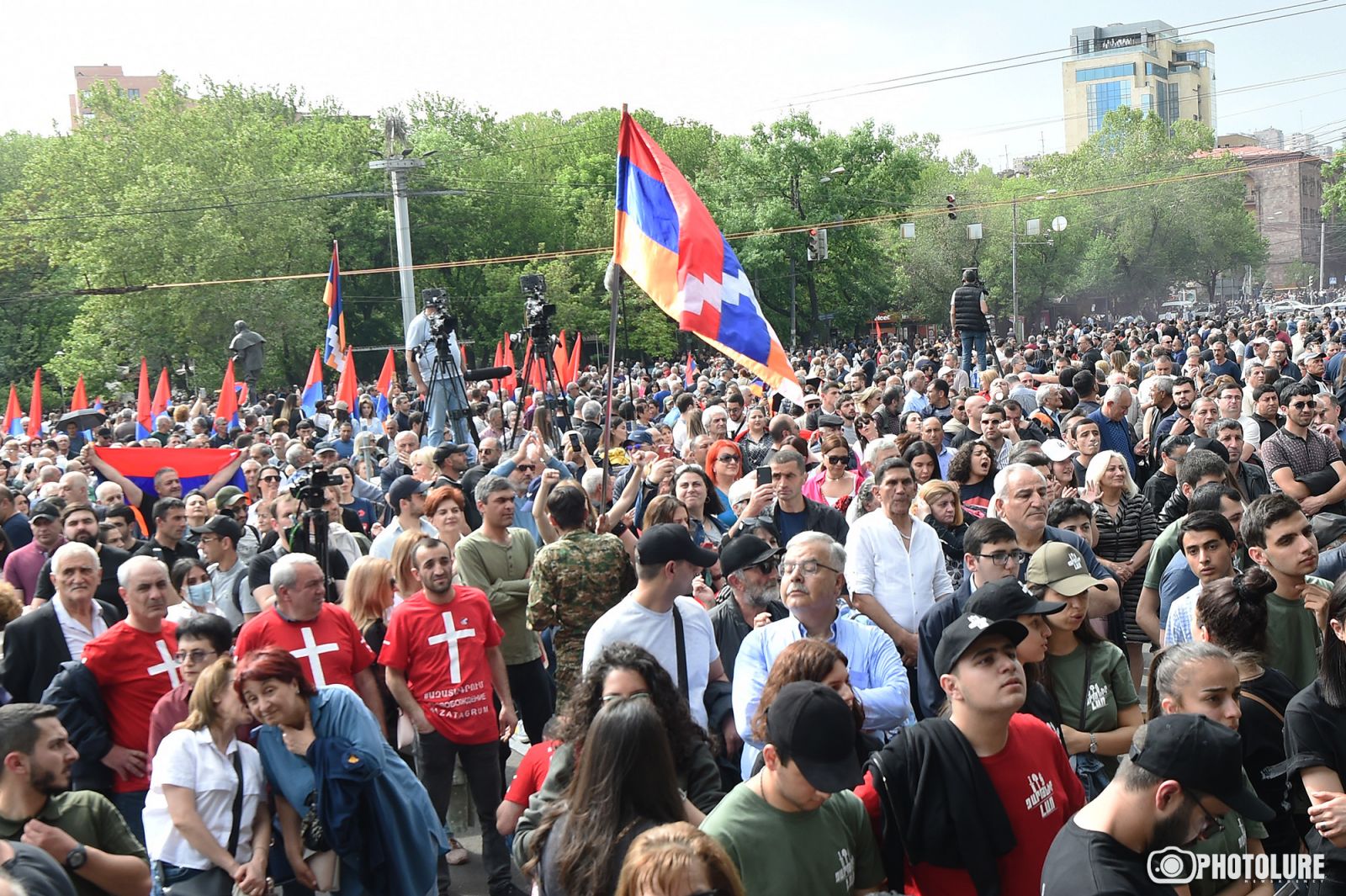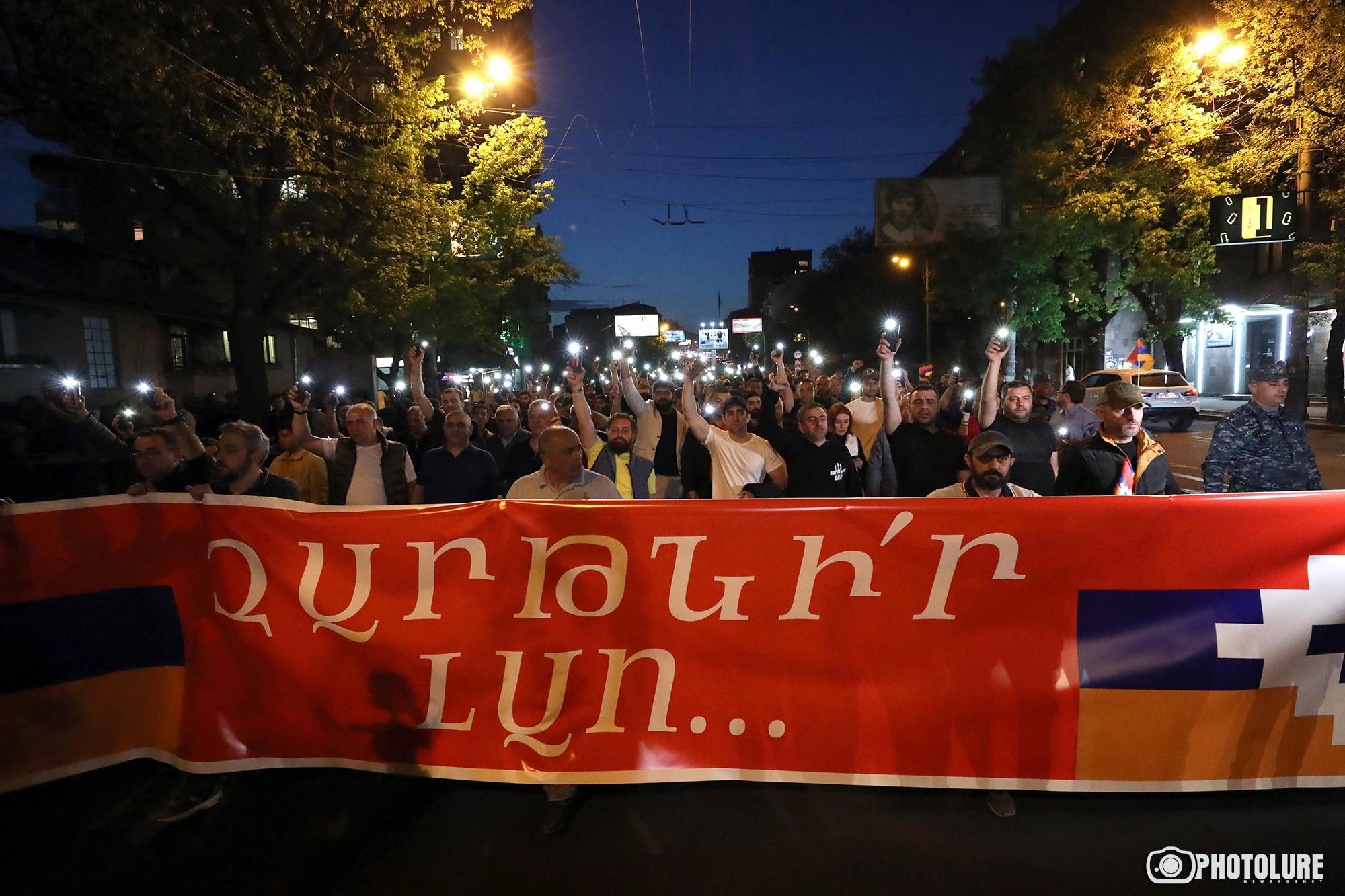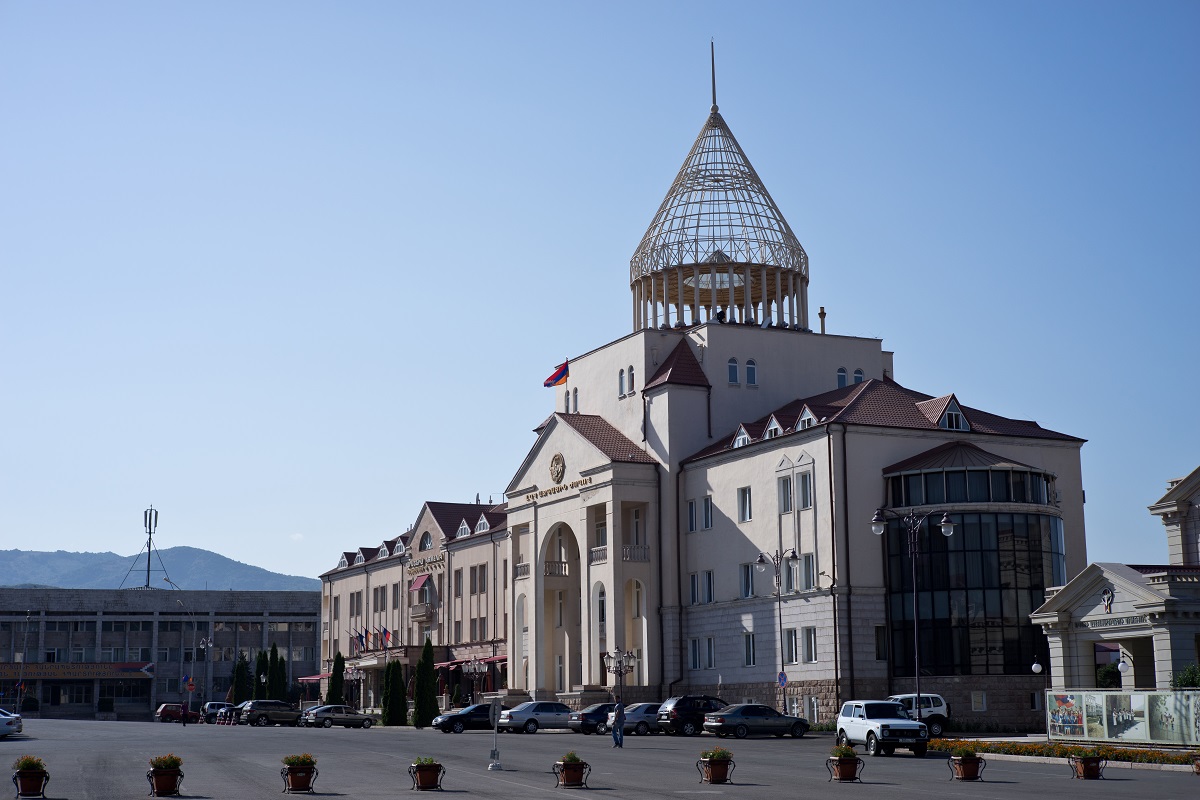Armenian MPs may lose mandates for protesting, skipping sessions
Will Armenian opposition MPs loose their mandates?
In Armenia, the issue of the legality of depriving opposition MPs, who have been participating in street protests and demanding the resignation of the prime minister for over a month, is being discussed. For the entire last week, the ruling majority has been talking about the fact that opposition members do not come to work, do not participate in parliamentary sessions, but receive a salary. In the event of a prolonged absence from meetings, the law provides for the termination of the powers of a deputy. However, to start the procedure, it is necessary to prove that the absences lacked serious reasons.
The active phase of the struggle of the opposition began on May 1. The demand for the resignation of the prime minister is connected with Nikol Pashinyan’s statement that the international community expects the Armenian side to “lower the bar on the status of Nagorno-Karabakh”. The opposition regarded it as the consent of the Armenian authorities to the status of NK within Azerbaijan.
The struggle is led by two opposition parliamentary factions – Hayastan (Armenia) and I Have the Honor. Behind both are the former presidents of Armenia, known for their pro-Russian orientation. Hayastan is associated with ex-president Robert Kocharyan. The I Have the Honor bloc also includes the Republican Party of Armenia, whose leader is Serzh Sargsyan.
In response to criticism, opposition MPs argued that their boycott of the work of parliament was legally justified, and they were not giving up mandates yet, as they would still need them when the time for voting on a change of power would come.
The Speaker of the Armenian Parliament also addressed the issue of depriving opposition deputies of their powers. He stressed that this issue should be taken very seriously – “there is a law, it works and it must act”. However, according to Alen Simonyan, the issue can become a subject of discussion only after the end of the spring session, that is, after June 17. The fact is that the absences of deputies are generalized and summed up at the end of the session.
- “A list of promises or a program?”: what does the Armenian opposition offer to society
- Protesters in Armenia up pressure for PM Pashinyan’s resignation. Video
- Protests in Armenia continue – what will happen next?
“The issue of recognizing absences as ‘disrespectful’ is considered”
This was stated by the speaker of the National Assembly Alen Simonyan, who added that he personally took a strict approach to the issue of participation in the work of the parliament, but the procedure should take place exclusively within the framework of the law – “we will discuss it, we will figure it out”.
According to the speaker, it will be possible to discuss this issue only after the end of the spring session, after June 17, when it will be possible to summarize the data for the six months.
Speaking about the right to boycott, Alen Simonyan emphasized that, according to the law, each faction can declare it once:
“But, I beg your pardon, the parliament is not a passage yard, so that the deputies either declare a boycott when they want, and then come to the session when they please”.
According to Armenian media reports, 14 deputies have exhausted the allowed number of absences. Among them is the leaders of the “I Have the Honor faction Artur Vanetsyan and 13 deputies from the Hayastan (Armenia) faction: Ishkhan Saghatelyan, Vahe Hakobyan, Lilit Galstyan, Armen Rustamyan, Artur Ghazinyan, Gegham Manukyan, Aghvan Vardanyan, Andranik Tevanyan, Ashot Simonyan, Armen Charchyan, Asram Krpeyan, Artur Khachatryan and Aregnaz Manukyan.
“Depriving MPs of mandates is a secondary issue”
Ishkhan Saghatelyan, vice-speaker of parliament from the opposition, regarded the discussions on deprivation of mandates as an attempt by the authorities “to exert political pressure, to influence the oppositionists who took to the streets”.
According to him, for the opposition, the deprivation of mandates is a secondary issue. Ishkhan Saghatelyan stressed that the opposition deputies serve the interests of the people and fulfill their demands:
“For several months we served the needs of our people in parliament with legislative initiatives and extraordinary sessions. Then, when the agenda dictated the need to take to the streets, we took to the streets. If necessary, we will consider whether there is an agenda in parliament, an issue for discussion at an extraordinary meeting – and we will be in parliament”.
The vice-speaker from the opposition said that he intends to return to parliament. He did not say what are the intentions of his comrades-in-arms in this regard.
Revocation procedure
In accordance with the law “Regulations of the National Assembly”, a deputy may be deprived of his mandate if, for a good reason, he missed at least half of the meetings “within the time frame of six months”. The same law requires proof that the absences were ‘disrespectful’.
The absence of a deputy is considered valid only in two cases: if he was on a business trip or was ill. In case of illness, the deputy must submit a certificate of incapacity for work issued by a doctor.
The procedure for deprivation of a mandate is as follows. If a deputy misses half of the sittings or more, the council of the National Assembly applies to the Constitutional Court on the issue of terminating the powers of the deputy. However, before the final decision on applying to the Constitutional Court, the council must take at a meeting convened at the initiative of the speaker.
If the decision is not made at the council meeting, the issue will not be closed. A group of deputies constituting at least 1/5 of the total number of parliamentarians can apply to the Constitutional Court with the same question.
According to the law, each faction can only miss one meeting.
Expert commentary
According to lawyer and former MP Taron Simonyan, the withdrawal of the mandate is a topic of legal discussions, and even the comments of the Venice Commission of the Council of Europe are ambiguous on this issue.
Taron Simonyan believes that organizing actions is one of the manifestations of the political activity of the opposition:
“Based on this, the ruling political force cannot apply these sanctions against them”.
The expert explains that although the law provides for the possibility of depriving a deputy of a mandate due to omissions, it should not be interpreted literally, but based on the prescribed goal.
In his opinion, the law provides for the deprivation of a deputy’s mandate if they fails to fulfill their duties, including if they do not voice, do not raise issues of concern to society and do not serve the will of the people:
“Opposition politicians believe that now the priority is to raise issues that concern society, thus [that is, by street struggle] to declare the will of the people, and not go to write the law. […] That is, this article of the law does not require only a physical presence in parliament, but clearly requires active political and legislative work”.
Lawyer Ara Ghazaryan emphasizes that the street struggle of the opposition is carried out on a voluntary basis and has nothing to do with their parliamentary status:
“As far as I understand, depriving a deputy of his mandate for failure to attend sessions is a way to bring them to disciplinary responsibility. But this has nothing to do with their public activities, because they are not engaged in public activities as a deputy”.
Ara Ghazaryan believes that it is necessary to thoroughly study the grounds for depriving deputies of mandates provided for by law. Until then, he has refrained from commenting.





















